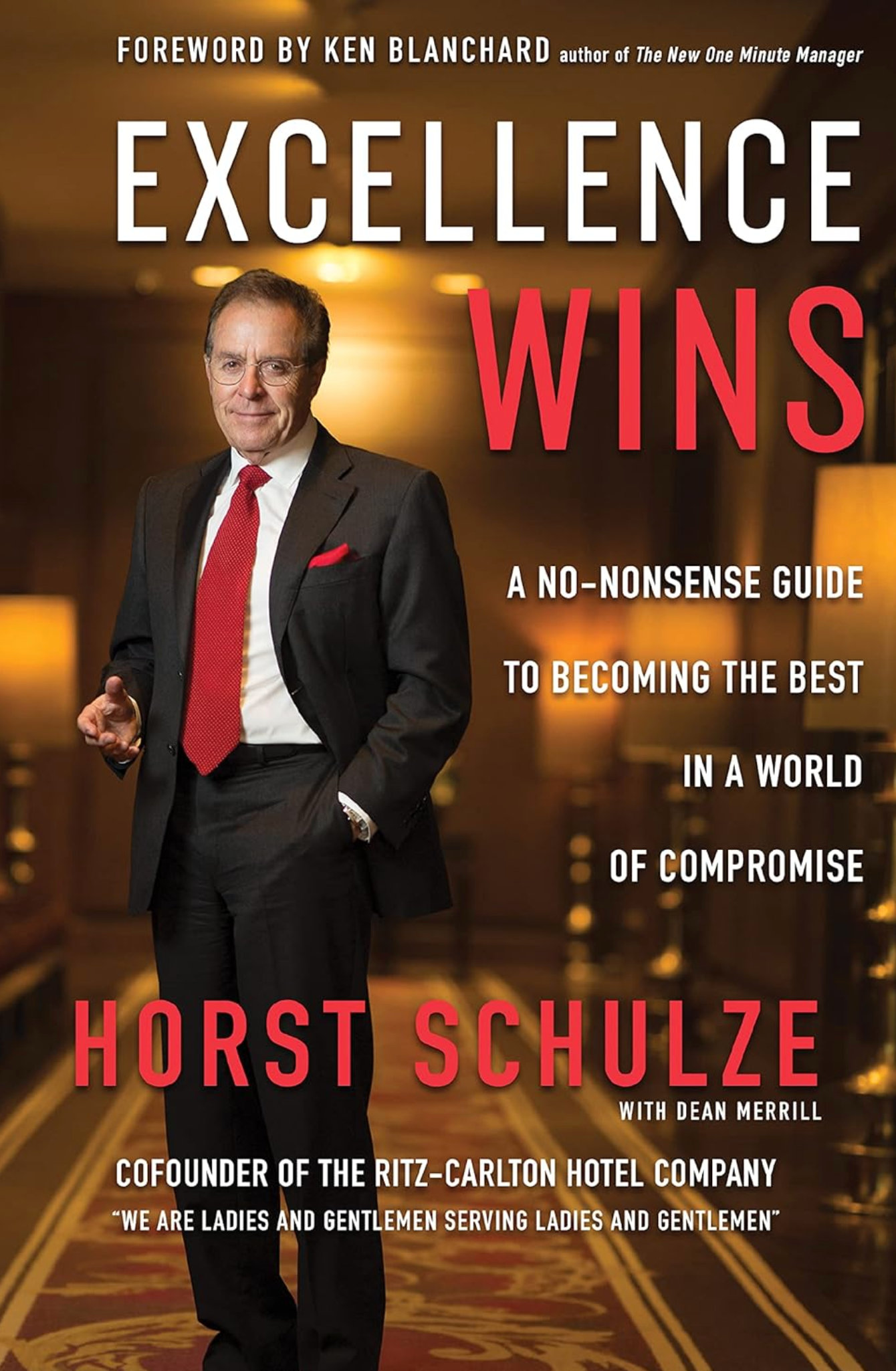Our Blog
Excellence Wins

Tom Doescher
 In his 2019 book, “Excellence Wins,” the co-founder and president of the Ritz-Carleton Hotel Co., Horst Schulze, takes you behind the curtain and explains the unique culture that he and his team put in place. Although it deals with a hotel, I believe his principles could be applied to any business that truly puts the customer/client/guest/patient first. In my opinion, most companies say they put the customer first, but fall significantly short of that goal.
In his 2019 book, “Excellence Wins,” the co-founder and president of the Ritz-Carleton Hotel Co., Horst Schulze, takes you behind the curtain and explains the unique culture that he and his team put in place. Although it deals with a hotel, I believe his principles could be applied to any business that truly puts the customer/client/guest/patient first. In my opinion, most companies say they put the customer first, but fall significantly short of that goal.
I would highly recommend reading “Excellence Wins.” It’s an easy, entertaining, and quick read, with lots of meat. To whet your appetite, I’ll highlight just a few of my favorite takeaways:
♦ Customers want three main things: 1) They want a product or service with no defects; 2) They want timeliness; 3) They want the person with whom they’re dealing to be nice to them. (Editorial comment: I know this list sounds too simple, but as I reflect back at my own disappointments dealing with so many different companies, most of my complaints fall into these categories. I’ve written about leaving a doctor that I loved because of all three of the above items.)
♦ Customer service isn’t just for those who face the public. It also extends to people inside the organization who deal with each other.
♦ “That’s not my job.” (Editorial comment: This is one of my top complaints. I really don’t care whose fault it is; I just want my computer back. Blaming someone else in your company looks really bad!)
♦ Four Supreme Objectives: 1) Keep the customer; 2) Get new customers; 3) Encourage the customers to spend as much as possible — but without sabotaging Objective No. 1; 4) In all of the above, keep working toward more and more efficiency. (Editorial comment: Many companies that I work with offer additional services because, over the years, customers said they would appreciate that additional product or service. So when you’re serving customers, offering them additional products/services is what they want. Just don’t hard-sell them.)
♦ This is one of Schulze’s best tips: Two percent of customers simply cannot be pleased. They’re irrational. They want things they can’t afford, or they want things that will irritate the 98 percent. He calls this “the jerk factor” and provides some really entertaining methods of “firing” the jerks. (Editorial comment: Most companies could benefit from following Schulze’s lead with jerks.)
The book is filled with very practical, implementable, relevant ideas that would apply to most companies.
I’ll close with one of my favorites: One aspect of the Ritz’s service that’s received a lot of coverage is the fact that the Ritz empowers its employees to spend up to $2,000 to solve guest problems without requiring their manager’s approval. (Editorial comment: Schulze provides some amazing stories and also notes that employees don’t abuse the policy. There’s probably a bottleneck in your company and, if front-line employees were given more authority, it could be eliminated.)
Please get the book and enjoy reading it. Set a goal of implementing at least one new idea in your business.

